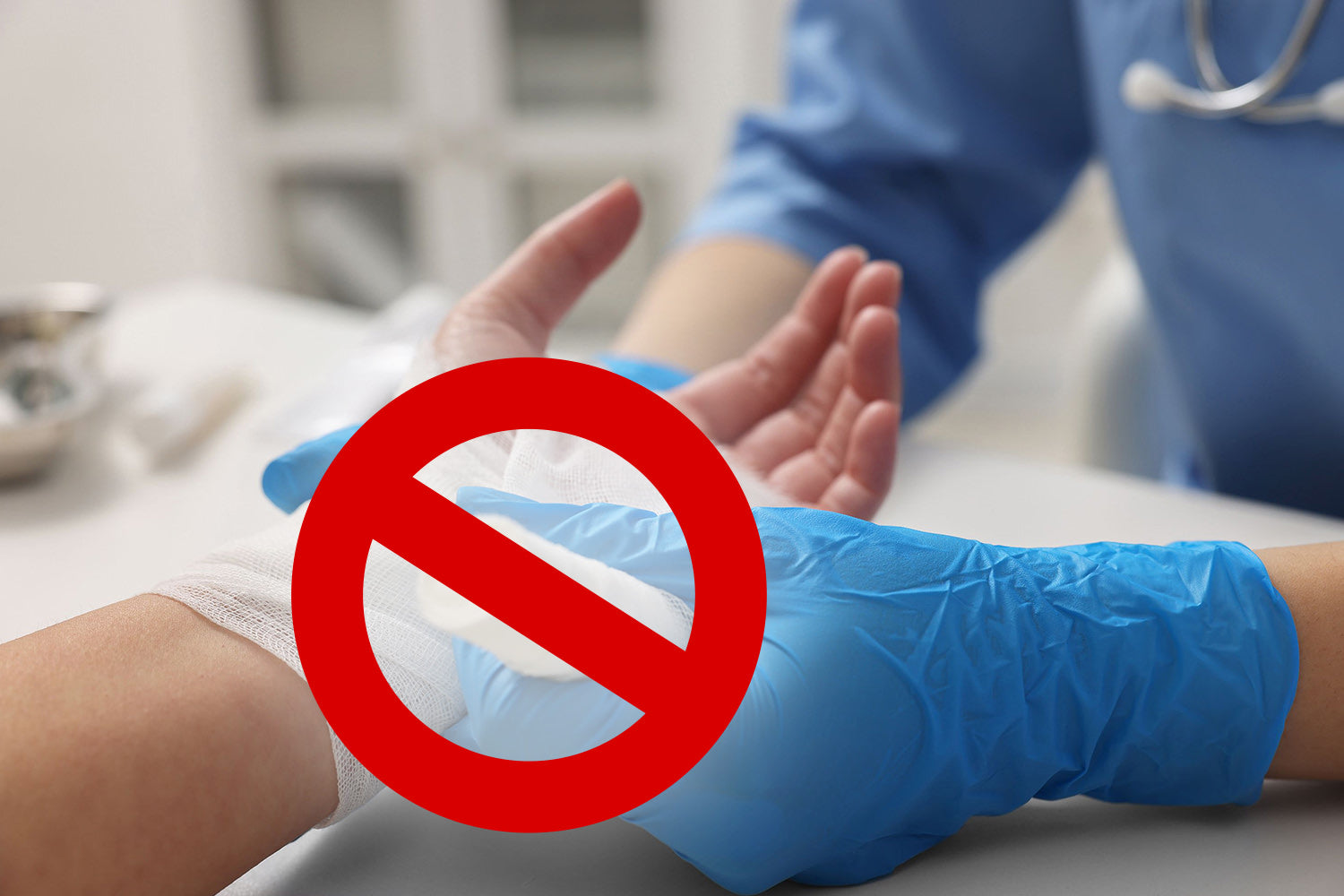Introduction: Why Choosing the Right Burn Dressing Matters
Most people assume that treating a burn is as simple as applying a bandage and moving on with their day. That’s a dangerous mistake. Using the wrong wound dressing on a burn can delay healing, increase pain, and even cause infections that require medical intervention.
I’ve seen it happen firsthand—someone suffering from a burn reaches for dry gauze or an adhesive bandage, thinking they’re doing the right thing, only to end up in more pain than when they started.
What you’ll learn in this article:
✅ The worst burn dressings that cause more harm than good
✅ The best burn dressings for faster healing and less scarring
✅ How to pick the right dressing for first-degree, second-degree, and third-degree burns
✅ A simple treatment plan to properly care for burns at home
✅ Answers to the most common burn dressing questions
Let’s make sure you never use the wrong dressing again.

The Worst Dressings for Burn Wounds (Avoid These!)
1. Dry Gauze Dressings (A Painful, Sticking Nightmare)
Many people instinctively reach for dry gauze to cover a burn, thinking it will protect the wound. But dry gauze is one of the worst choices for burn care.
🔴 Why It’s Bad:
- Gauze sticks to the wound, making removal excruciatingly painful.
- Tearing away gauze disrupts healing tissue, increasing the risk of scarring.
- It doesn’t keep the wound moist, which slows down healing.
✅ What to Use Instead:
- Vitale® Xeroform Petrolatum Dressings – Infused with soothing petrolatum, this non-stick dressing creates a protective, moist healing environment without adhering to the wound.
-
Vitale® Petrolatum Dressings – A sterile, non-adherent dressing designed specifically for burns and delicate healing skin.
2. Adhesive Bandages (A Recipe for More Damage)
A standard Band-Aid might be great for cuts, but never use adhesive bandages on burns.
🔴 Why It’s Bad:
- Adhesive sticks to fragile skin, causing painful removal.
- It traps heat, worsening the burn instead of cooling it.
- Burn wounds need airflow and moisture, which adhesive bandages don’t provide.
✅ What to Use Instead:
- Vitale® Hydrogel Dressings – Keeps burns cool and hydrated, reducing pain and promoting faster recovery.
- Vitale® Non-Adherent Oil Emulsion Dressings – A gentle, non-stick dressing that prevents trauma when changing bandages.

3. Cotton-Based Dressings (Absorbs Too Much Moisture!)
Cotton dressings may seem harmless, but they suck moisture away from the wound, leaving it dry and vulnerable to cracking.
🔴 Why It’s Bad:
- Burns need a moist healing environment, and cotton does the opposite.
- Cotton sticks to wounds, leading to painful removal.
- It increases infection risk by shedding fibers that can get trapped in the burn.
✅ What to Use Instead:
- Vitale® Hydroconductive Dressings – Designed to regulate wound moisture, ensuring optimal healing conditions.
4. Alcohol or Iodine-Based Dressings (Burns the Burn!)
If you’ve ever applied alcohol or iodine to a wound, you know it stings like crazy. That’s because these antiseptics kill both bacteria and healthy healing cells.
🔴 Why It’s Bad:
- Slows healing by damaging new skin.
- Causes intense burning and discomfort.
- Increases the risk of scarring due to tissue damage.
✅ What to Use Instead:
- Vitale® Collagen Powder – Helps regenerate tissue, speeding up the healing process for deeper burns.
How to Choose the Best Burn Dressing for Faster Healing
Use this quick guide to match the right dressing to your burn:
| Burn Severity | Best Dressing Type | Why It Works |
|---|---|---|
| First-degree (red, no blisters) | Hydrogel or petrolatum dressing | Soothes, hydrates, and prevents infection |
| Second-degree (blisters, deeper tissue damage) | Hydrogel, petrolatum, or oil emulsion dressing | Keeps skin hydrated and promotes healing without sticking |
| Third-degree (charred or white tissue) | Collagen dressing or hydroconductive dressing | Supports tissue regeneration and manages heavy drainage |
👉 Browse all CellEra burn care dressings here: CellEra Wound Care Collection
FAQs: Burn Wound Care & Dressings
| Question | Answer |
|---|---|
| Can I use Neosporin on a burn? | While Neosporin can prevent infection, it doesn’t provide the necessary moisture for burn healing. A hydrogel dressing is a better option. |
| How often should I change a burn dressing? | Usually every 1-3 days, depending on drainage levels. Always follow product instructions. |
| Should I pop a burn blister? | No! Blisters protect healing skin. Only drain them if a doctor advises it. |
| Are collagen dressings good for burns? | Yes! Collagen promotes faster tissue repair and minimizes scarring. |
| What’s the fastest way to heal a burn? | Keep it moist, covered, and clean using a hydrogel or petrolatum dressing. |
Conclusion: Get the Best Burn Dressings from CellEra
Using the wrong burn dressing can prolong your recovery, increase pain, and cause complications. But now that you know what NOT to use—and which CellEra dressings work best—you’re equipped to heal burns safely and effectively.
✅ Fast healing
✅ Less pain & scarring
✅ Trusted by professionals
👉 Find the best burn dressing for your needs today: Shop Burn Dressings Now
Disclaimer:
This webpage is designed for general information only. The information presented at this site should not be construed as formal medical advice or as a substitute for professional medical treatment. Results will vary.





Share:
Why Most Heel Dressings Fail – And The One That Actually Works
The Right Way to Layer Wound Dressings for Faster Healing